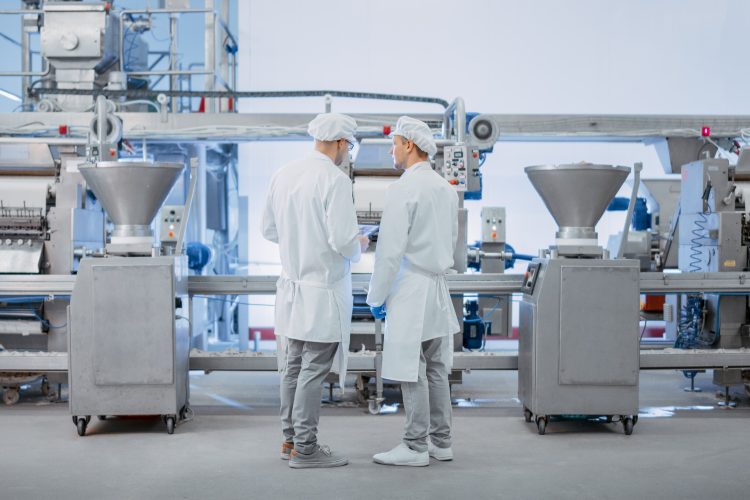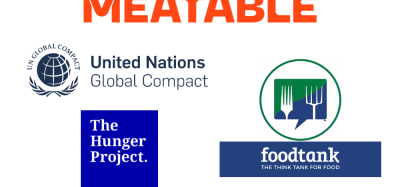How manufactures can reduce food waste during food production
- Like
- Digg
- Del
- Tumblr
- VKontakte
- Buffer
- Love This
- Odnoklassniki
- Meneame
- Blogger
- Amazon
- Yahoo Mail
- Gmail
- AOL
- Newsvine
- HackerNews
- Evernote
- MySpace
- Mail.ru
- Viadeo
- Line
- Comments
- Yummly
- SMS
- Viber
- Telegram
- Subscribe
- Skype
- Facebook Messenger
- Kakao
- LiveJournal
- Yammer
- Edgar
- Fintel
- Mix
- Instapaper
- Copy Link
Posted: 18 January 2024 | Andrew Poles | No comments yet
In this piece, Andrew Poles reveals key tips for food manufactures on cutting down the amount of food being wasted during the production process.


By Andrew Powles, Managing Director at FPE Seals
The Waste and Resources Action Programme (WRAP) had released a report that revealed 16 percent of the UK’s food waste comes from manufacturers and production plants that haven’t optimised processes to handle their waste. This backups the importance of food businesses to monitor where they produce the most waste to then implement a strategy to deal with it accordingly.
With that in mind, Andrew Powles, Managing Director of piston seals provider FPE Seals has provided his insight for key areas in which food waste could be reduced during production.
Forecasting accurately
The first place to start is to monitor and analyse existing data to gain knowledge on your products and the waste that you produce, which is essential for building out your waste management strategy and reducing what’s generated. If you analyse the amount of waste that comes from raw materials when producing their products and compare against hod much is sold will help form up a greater picture of the amount of ingredients, you need to order to meet your demands.
There are technologies that exist, like data collection services that can provide a more accurate forecasts that will help optimise your processes better.
Improve your packaging quality
To significantly improve the life of food, is to implement better quality packaging. This should be prioritised to reduce waste not only within the supply chain but domestically too. Top-quality packaging throughout the manufacturing chain will also reduce contamination through handling.
Throughout history, packaging uses plastic due to its durability and how well it protects against deterioration when sealed properly. Estimates from the UK government find that more than 2.2 million tonnes of plastic packaging is introduced to the consumer market annually.
Despite recyclable plastic technology is improving, it’s still crucial for producers in the manufacturing chain to find a good balance between using plastics that not only preserve food but don’t also contribute to landfill Labelling use by and best before dates should also be included visibly on your packaging, as well as advice on properly storing the product for the longest shelf life.
Invest in quality assurance and control
Not all products are perfect, however if you invest more time into quality assurance and control within the production process, than this can help reduce your waste output. Under and overcooked food needs to be disposed of, but it creates more waste, and having quality products made from the start reduces this risk.
Investing in appropriate resources and training your quality control team, can be a great way to ensure your processes are optimised. This can even include integrating automation of more mundane processes to give the workers more time to ensure the quality of your products.
Training and transparency
If you conduct appropriate training and encourage transparency across your team around the importance of food waste, this will ensure everyone is invested in the right area. This can be done internally by any training and knowledge department you might have or by bringing in a third-party educator to provide insight into the larger effects of food waste.
If you educate your staff about the harmful effects of landfill emissions and chemical contamination, that can obstruct the growth of food production, you’ll accommodate a more positive company culture that share the same attitude towards food waste.
With this education, not only will your staff feel invested in, they’d also be able to communicate problems within processes that they gain perspective on that can help further optimise your food waste. These habits will help to build positive values and habits in your business.
Furthermore, providing your team with the latest technologies and training them to operate them can help improve all aspects of food production.
Sources
https://wrap.org.uk/resources/report/food-surplus-and-waste-uk-key-facts
https://post.parliament.uk/research-briefings/post-pb-0039/
About the author
Andrew Powles is the Managing Director at FPE Seals









